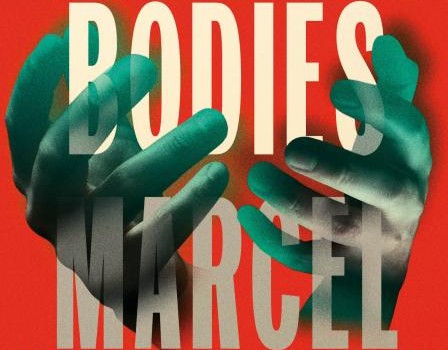Strange Bodies by Marcel Theroux
| Press reviews | Buy the book | Have your say |
Blurb: Nicholas Slopen has been dead for months. So when a man claiming to be Nicholas turns up to visit an old girlfriend, deception seems the only possible motive. Yet nothing can make him change his story. From the secure unit of a notorious psychiatric hospital, he begins to tell his tale: an account of attempted forgery that draws the reader towards an extraordinary truth – a metaphysical conspiracy that lies on the other side of madness and death. (Faber & Faber)
Kate Saunders, The Times
“This is a superb technological fantasy, a tense thriller and a brilliantly imagined debate about the relationship between body and soul. Wonderful.”
Doug Johnstone, The Independent
“There is a deeply melancholic undertow to Strange Bodies, reminiscent of Kazuo Ishiguro’s Never Let Me Go; indeed, both books share a morally complex look at mortality. The way in which Theroux portrays his central character’s plight and mindset is heartbreaking without ever seeming manipulative. It’s not often you read a book as clever as this that is also emotionally charged and moving. It is to Theroux’s immense credit that he pulls it off so convincingly.”
Alexander Larman, The Observer
“Theroux deserves credit for transforming the narrative from an everyday novel of highbrow London life, complete with thinly disguised cameos by various media world worthies (is that the late Sebastian Horsley as the artist and writer Pascal Sheldon?), into a baroque fantasy of identity and madness that nods at everything from Hamlet to Frankenstein, with hints of Caryl Churchill’s A Number and Russian utopian science fiction along the way. If some of the plot developments occasionally feel contrived to fit in with his grand scheme – this is very much a book in which villains are both omniscient and forever present – then it barely matters, such is the visionary glee with which Theroux creates a world”
Adrian Turpin, Literary Review
“Theroux gleefully runs the gamut between penny-dreadful thrills and philosophical speculation about the nature of consciousness and identity, bringing matters to a satisfyingly twisty conclusion that owes more than a little debt to Philip K Dick. But it ’s in its domestic back story that the book finds its emotional heart. Who hasn’t felt that their spirit, soul, essence – call it what you will – was at odds with their physical circumstances?”
Justine Jordan, The Guardian
“For the conceit of the novel is that we are made of words – our own, however stale and self-limiting (“I sometimes feel that you could reconstruct an entire marriage in 10 sentences”), and others’, especially the legacy of literature. There are snippets of Shakespeare, Milton, Auden and many more sewn into the fabric of the book, with Theroux’s found portrait of Johnson only the most animated literary presence. A swipe at the Shakespeare authorship debate forms a counterpoint to the puzzle of Nicholas’s identity: neatly, the book becomes an illustration of its own premise.”
Steve Almond, The New York Times
“There are a few crucial design flaws along the way. Like Mary Shelley, Theroux frames his narrative as an urgent confessional; Slopen must tell the reader everything before it’s too late. The problem is that the author, perhaps in a nod to Gothic tradition, wants to keep the reader in suspense, and so the first two-thirds of the book are filled with details that favor foreboding over revelation. More disturbing, the explanation of the Malevin Procedure, when it finally arrives, is slapdash. “
Buy the book
Amazon | Foyles | Hive | Waterstones
[AMAZONPRODUCT=0571297897]












